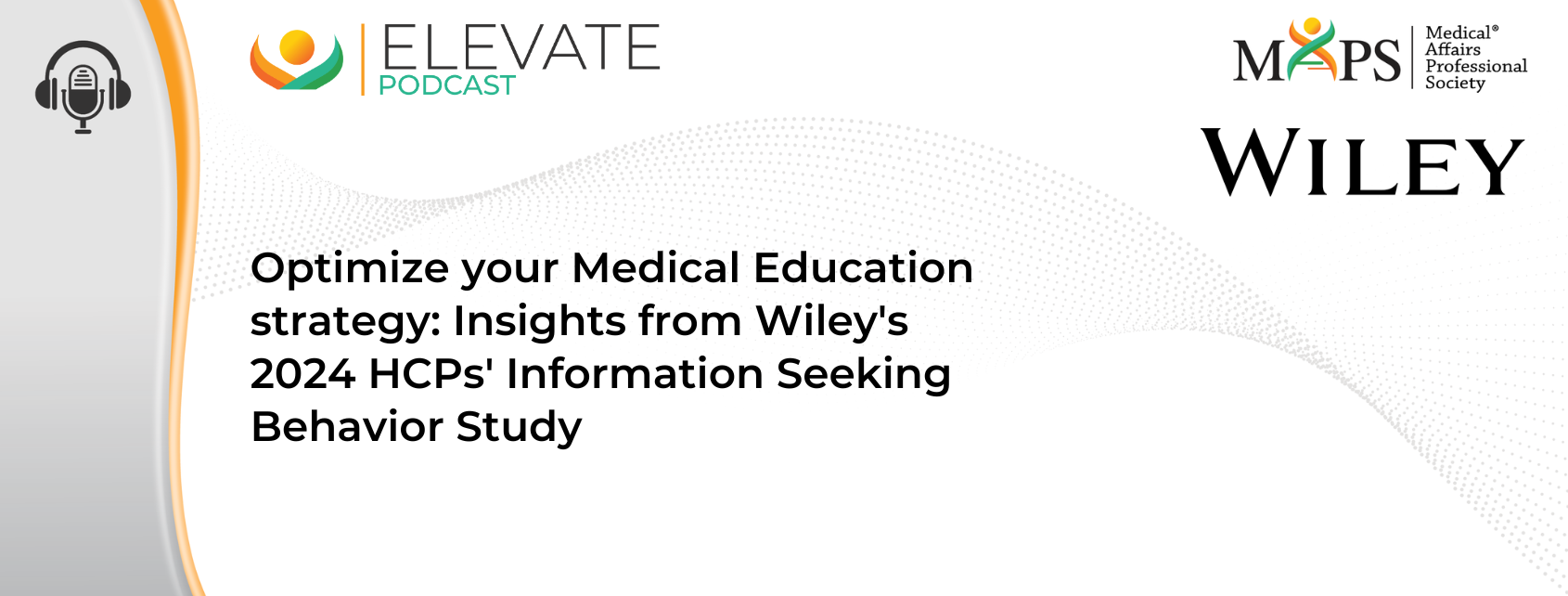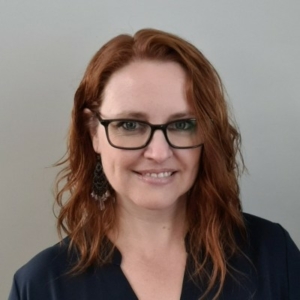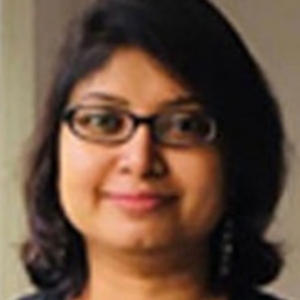Optimize your Medical Education Strategy: Insights from Wiley’s 2024 HCPs’ Information Seeking Behavior Study
Speaker: Angie List
Speaker: Sucharita Kundu
In this podcast episode, we share insights from the Wiley annual healthcare professionals survey and interviews on the sources of information they seek and trust. You will learn about how their content needs and preference are evolving and the factors driving their information choices and educational needs. A must listen for those looking to advance their HCP engagement with practical tips to enhance your medical education strategy. Find Wiley webinar describing survey results HERE.
Following is an automated transcription provided by otter.ai. Please excuse inaccuracies.
Garth Sundem 00:00
Garth, welcome to this episode of the Medical Affairs Professional Society podcast series, Elevate. I’m your host. Garth Sundem, Content Director at MAPS, and today we’re talking about the 2024 Wiley HCPs Information-Seeking Behavior Study and Medical Education strategy. Joining us are such Ducharita Kundu, Senior Manager, Content Strategy, Health at Wiley, and Angie List, Corporate Solutions Director for APAC at Wiley. This episode is sponsored by Wiley. So Angie, I always enjoy these surveys. They always come up with such interesting insights, can you tell us about the survey and get us going with the background? Please?
Angie List 00:45
Absolutely. So look, I thought it would be helpful to just give some context as to why Wiley is surveying them in the first place. And I guess the benefit to your listeners in Medical Affairs. So most people would be familiar with Wiley as a global leader in research and education, we’ve been doing that for about 200 years, and at the heart, our mission really is to empower knowledge to further the boundaries of science, to solve the world’s biggest challenges. And when it comes to healthcare, our goal there is empowering healthcare professionals with the knowledge they need to make better clinical decisions. In order to do that, we really need to understand how they find information, how they consume it, and how they apply that information, and the factors that drive their content choices when seeking clinical answers. So we do this survey every year. We usually get around 1000 or so responses from around the world as well. We have a really good representation globally. The samples are always representative of the universe of healthcare professionals as well in terms of gender, age, region and practice setting. We usually get results. We will do an analysis right down to the regional level, but always extremely consistent across the globe. There are some nuances when it comes to, you know, behavior around particular social media channels and things like that. But generally, we’ll find the responses are really consistent across the globe. And this year, we actually included interviews with Medical Affairs and pharma marketing professionals as well, to get that a more detailed picture and their perspective from from the other side of it. That’s
Garth Sundem 02:18
Interesting. You know, it strikes me that what you’re doing is Medical Affairs. I mean, you’re an organization that has information, and you need to disseminate that information to HCPs. And is that your understanding as well? I’m sorry to just ask a background question, but do you see what you do as Medical Affairs?
Angie List 02:37
Well, you know, but it is very much aligned, you know? We have, we have the same goal. Our goal is to empower clinicians to make better clinical decisions. So when it’s really distill it down to that very basic concept, yes, we are very much aligned with that. We just have a much, I guess, broader capacity to be able to do that and a lot more information, but very, very much aligned with those goals.
Garth Sundem 02:58
Okay, that’s interesting. Okay, so now let’s get into what the survey showed. So I have a lot of questions about it, but why don’t you just take us through the main findings first to get started?
Angie List 03:12
Yeah, absolutely. So look, the number one thing that has come out is that the healthcare professionals are overwhelmed with information. There’s more than 2 million articles published a year, and medical knowledge is doubling as rapidly as every few weeks. So staying up to date is hard, and this is reflected in the survey results. Finding relevant information and keeping up to date with the latest advice represents the number one challenge. But then with so much information out there, source, credibility is the second biggest challenge. So our The results show, assessing the credibility of sources finding unbiased information, and critically assessing the credibility of open access or free resources is the second biggest challenge that they’re finding out there. Interestingly, nearly the majority, 78% still rely on the published full text article, so they do want to go to the original source. They don’t want to necessarily believe everything they read unless they get it right, straight from the horse’s mouth. It’s there. So medical journals are still their number one trusted resource. But the challenge, if we go back to the finding the information, is that they’re they just cannot read every single article. They still need help to find the information, and they need they need it on demand. They need access when, where and how. They need it in the shortest time possible, which is why we’re seeing a significant growth in demand for the short form content formats, the easy that offer that easier and faster access, the videos, the infographics, the factual summaries and those things. In fact, one of the survey questions was around what they considered most important when they’re choosing content and offers a brief, high level summary was almost as equally important as the reputation of the source. So, you know, there’s a lot of information to take out of it, but the three. Things that we really take out is make the research easier to find, make research easier to understand, and then make it easier to apply.
Garth Sundem 05:09
Up-to date, relevant information that is non biased. This is still sounding more and more like Medical Affairs, and it’s sounding more and more tell us how to do Medical Affairs better. So such a Rita. Let’s dig in on some things like this credibility and how does it influence content strategy. Then, as we’re taking this information and deciding what to do with it, right?
Sucharita Kundu 05:35
That’s a very interesting question, what we’re seeing. And just to add on to what Angie was saying, I think this audience is a very interesting audience. It’s kind of a multi layered audience, and there’s a multi optimization problem. I think there’s just so much important information out there, and one of the things that Angie mentioned is how to find that specific information, and that’s why the diverse content formats are very important, but also what is important is the credibility of the sources. So we know from these surveys that people trust the online journals. They trust the publishers. So the publishers have connections to societies, and you know that that brings in the credibility publishers and journals also have access to key opinion leaders. These are the people who are actually there in the clinic. They’re identifying those gaps in medical education. They know what’s going to give the patient the best outcome. And we’re all we’re all kind of, you know, not only are we trying to help the HCPs make those best clinical decisions. Ultimately, we want the best patient outcomes, and so credibility of the resources is of utmost importance. But also of importance is something that’s editorially LED.
Garth Sundem 06:56
Okay, I’m sorry. Catch me up. What do you mean by editorially led is that just that it’s peer reviewed, what do you mean editorially led?
Sucharita Kundu 07:05
So when I mean, what I mean by editorially led is these key opinion leaders are actually giving us the information as to what is needed or what is the gap in the clinic, and when that is supported by evidence based, peer reviewed research that is coming out in all these online or print journals, that’s that’s adding to that credibility. So it’s an amalgamation of not only having the big, key opinion leaders in the field who are invested in this therapeutic area, but also that then we’re getting backed up by the evidence and the research that is being published on online journals, and it’s an amalgamation of both of these sources that will lend to a better medical education program and help the HCPs in their clinical making decisions.
Garth Sundem 07:51
Okay, that’s interesting. So it’s not just what you’re saying, it’s who’s saying it. And I imagine that could be a lesson that Medical Affairs listeners could take away that as we’re providing medical education, it matters not only what’s in the deck, but who’s on stage presenting the deck. Does that square with the survey results as well?
Angie List 08:18
Yeah, absolutely. The credibility of the source is rated as one of the most high impact decisions for for client, for for healthcare professionals, absolutely.
Garth Sundem 08:30
Okay. Well, so then medical education, let’s, let’s take these survey results and think about what to do with them in terms of best practices for medical education, you know, in this context, delivered by by Medical Affairs. So What recommendations would would you have Angie for what to do, and especially what might be changing in best practices for medical education?
Angie List 08:59
Yeah, look, absolutely, I think I said, if you can distill it down to the simplest thing that we need to be thinking about whenever we’re delivering any program where you’re trying to educate or engage healthcare professionals make it easy to find, easy to understand and easy to apply, right? So what does that mean in practice, really understanding these survey results? So and it’s not just Wiley that does these surveys. There’s multiple other organizations that will do conduct similar surveys around HCP preferences, but it’s really, really important you understand them, that you’re delivering the content in those diverse formats. So webinars, interactive, e learning, infographics, video, abstracts, podcasts, interestingly, making things available to be printed and downloaded is also really key. HCPs want that content on demand. They need it in in have those different formats. Some people learn visually. Some people want to take it in through through audio, the webinars and the K. Well, commentaries and those things some people learn best when they’re involved in or even observing a conversation around a topic rather than imagery. So it’s really about understanding all of these different types of formats that are going to be really beneficial in getting that research across, getting that scientific message across. The other thing that I would say is the importance of actually taking a really strategic view and a long term view. There are so many initiatives out there organizations do, or they might work with a third party provider or a partner to do, but it’s often a one program or a one initiative. It might be one webinar. It might be or maybe it’s a series of webinars, but it’s like that there’s, it’s there’s a start and an end, a very clear distinction between that or an E Learning Module, but there’s no real link between all of these different elements to really, truly understand what the impact is. And so what we’re trying to do with some of the education programs that we’re delivering is we take a long term view, we identify what those knowledge gaps are, and then we develop a course curriculum that’s designed to last for a full year. And within that there’ll be multiple learning objectives around closing that knowledge gap. And then you will have all of these different elements. There may be a webinar and infographic and an article collection and an E Learning Module all around this particular learning objective. But we’re not trying to just deliver a program for the sake of it. We’re really trying to say, where is our knowledge here today and where will it be at the end of this year after we deliver that program? And I think it’s really critical to be thinking much more strategically about your goals and your objectives around medical education and thinking about these initiatives.
Garth Sundem 11:44
So the information really powers strategy. It’s like that’s the fuel for the strategy. But what you’re doing is looking at medical education from a purpose driven or a strategy driven approach, where, where, yes, it happens you have all of this almost modular information that can be delivered in various formats. But you’re starting by asking, why would someone need to know this? What is the purpose of it? Such a video. Is that your perspective from the long term strategy approach?
Sucharita Kundu 12:21
Yeah, I wanted to actually mention that that you’re absolutely spot on. One of the things that our participants in the survey did highlight was that they wanted to be very clear on the clarity. They wanted clarity on this learning programs, why they were doing that, and what were they going to get out of it? So that’s that’s something that has come up. One of the other things, just to add on to what Angie was mentioning about this long term strategy, is it allows us to actually look into the measurement of outcomes. What is that impact? Is somebody going to learn from these medical education programs? Are they going to go and apply that into their actual clinical practice. We can measure knowledge, we can measure confidence, and you know indirectly, or measuring the confidence of these learners then as to how they’re going to go and apply it in the clinic.
Garth Sundem 13:13
That’s interesting. So I think that historically, Medical Affairs might have provided external education from the perspective of what the company wanted to communicate, but it seems to me like you’re recommending an approach that is based on you know, what HCPs want communicated Is, is is this a change? Is knowing the data gap from the HCP perspective, the starting point? And is that a new thing?
Angie List 13:49
Um, it’s definitely the starting point. Whether or not it’s a new thing or it’s been recognized as as the importance of that. I think one of my favorite sayings is that if the only tool you have is a hammer, then everything looks like a nail. And I think the approach to, you know, medicines has been, let’s just promote the hammer, Hammer, hammer, Hammer, hammer, Hammer, right? But what we need to be moving away from is like thinking at what point is the hammer the appropriate tool, and at what point is the screwdriver the appropriate tool, right? We need to empower doctors to make the right decision for their patient every time that the patient that is sitting in front of them. And I think that has become a very much more recognized thing, particularly with Medical Affairs really leading that charge in terms of how they’re communicating the science. And I think that’s we’re seeing that in the application of these education programs, where we’re starting with, where is the knowledge gap? What do they need to understand and learn, and what is the best way of making sure that they get that information? So starting with what the objective is first, not what information needs to come across.
Garth Sundem 14:51
Okay? And so maybe historically, we did only have a hammer, but now that is not the case. Now we have all sort of infographic, screwdriver. And all of the things that we can use to boy, deliver the right information to the right HCP at the right time, if we’re going
Angie List 15:08
to use Exactly, exactly.





